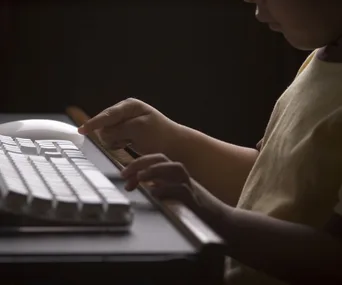A disturbing case in which a 12-year-old boy repeatedly raped his nine-year-old sister is tipped to become more common because of the easy access kids have to hardcore porn online.
The boy, now 14, pleaded guilty to six charges of a raping a girl under the age of 13 during the summer of 2015. The girl was his little sister.
The court heard the acts had taken place in the girl’s bedroom “at a time when he was sure he wouldn’t be disturbed. The boy had told her if she didn’t have sex “she wouldn’t be his sister any more”. After the girl told their mum what he had been doing the boy claimed she had agreed to have sex.
The court was told the boy had typed in search terms on the internet in order to find incest porn.
The boy has been sentenced to a 12-month referral order and has a Sexual Harm Prevention Order placed on him for five years. The conditions of the order mean the boy, who is now living in a supervised treatment unit, cannot associate with anybody under the age of 16 and cannot contact his sister.
He is allowed to access the internet but is not allowed to delete the search history because police will regularly inspect all his electronic devices.
“If you bump into anyone under the age of 16 then you have to walk away – you cannot associate with them,” the judge warned.
“When you come out of the treatment unit at 16 you will still have police monitoring you until the age of 19.”
The prosecution had this scary prediction: “Cases of this nature will increasingly come before the court because of the access young people now have to hard core pornography.”
How can parents manage their children’s access to online porn?
With kids walking around with little computers in their pockets – that is, their phones – it’s nigh on impossible to stop them from ever seeing porn online.
So, said Alina Morawska, Deputy Director (Research), Parenting and Family Support Centre, The University of Queensland, in an article she wrote for The Conversation, the way to manage it is to talk to our kids about it.
She says, frighteningly, that exposure starts at the age of about 11 – and it would be a rare child who hadn’t seen online porn at all by the time they’re about to have sex themselves.
“… we need to talk to our kids about sex, and porn, without sending them cringing back to their bedrooms,” she writes. And then she lists all the benefits of having these awkward conversations.
“The benefits of having open, clear, factual discussions with children about online media and digital relationships are clear. Children who receive sex and relationship education from an early age are more likely to:
understand and accept physical and emotional changes with confidence
feel positive about their bodies
appreciate and accept individual differences
make informed and responsible sexual decisions later in life
feel good about themselves and their gender
be capable of communicating about sexual matters
understand what constitutes appropriate and inappropriate behaviour.
They’re also less likely to be exploited or sexually abused.


